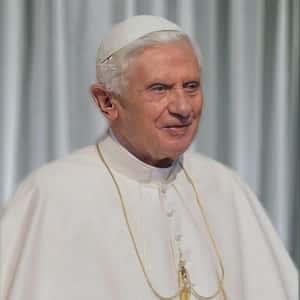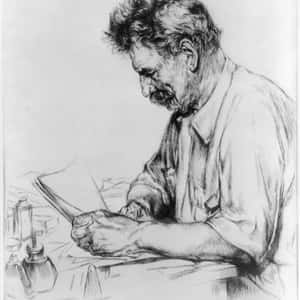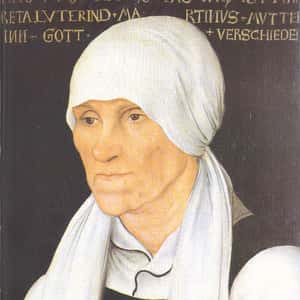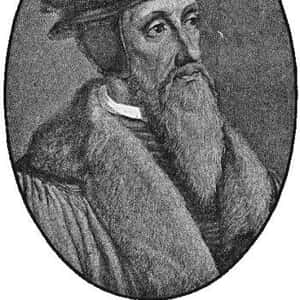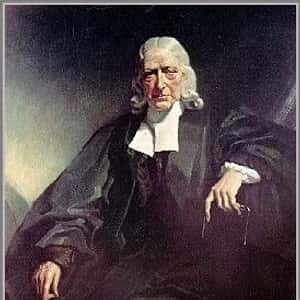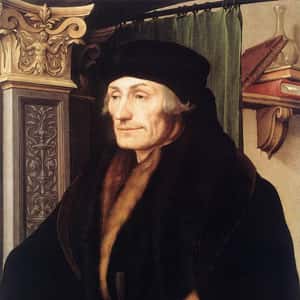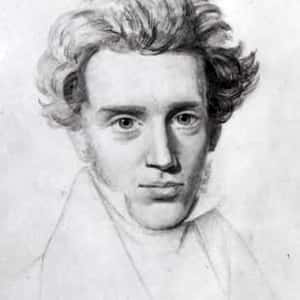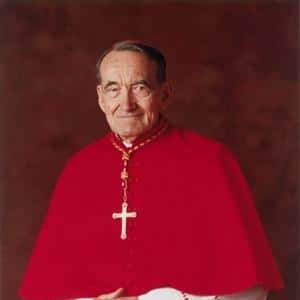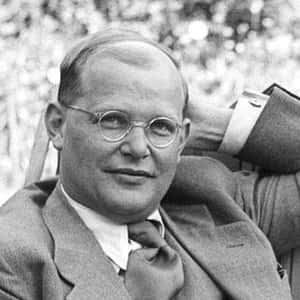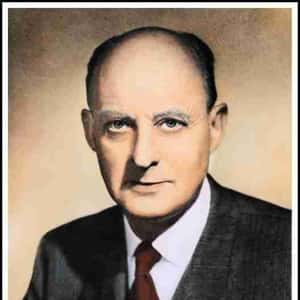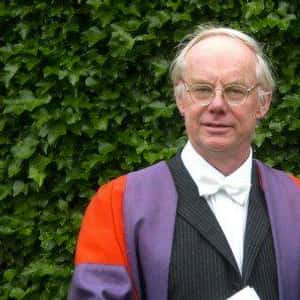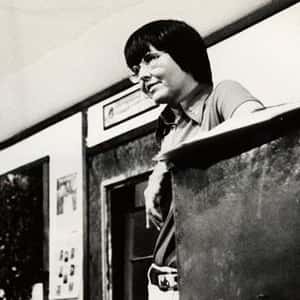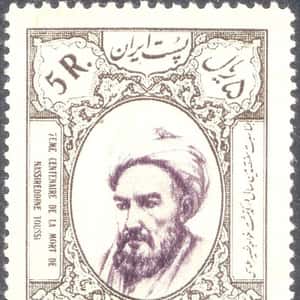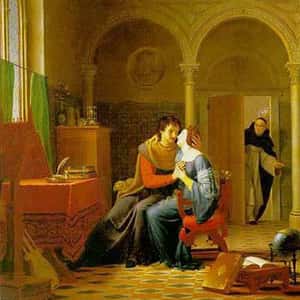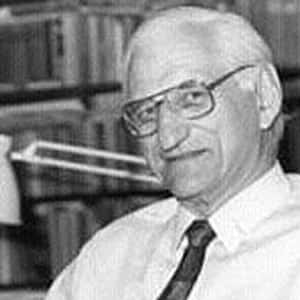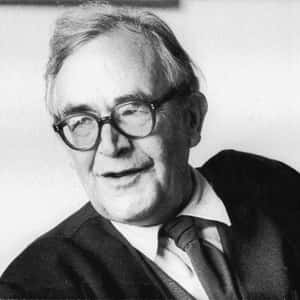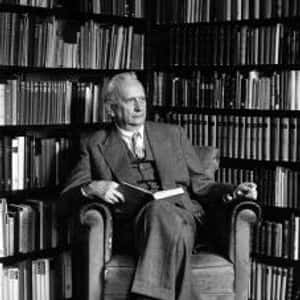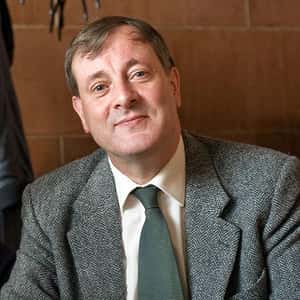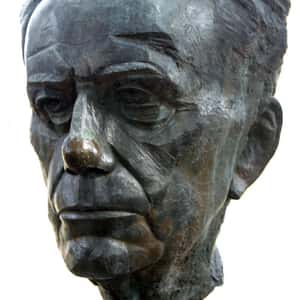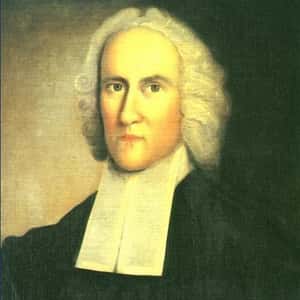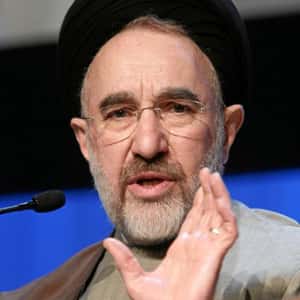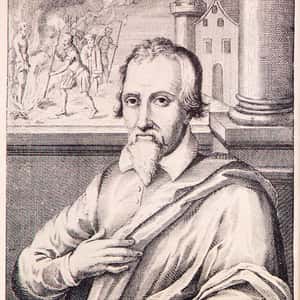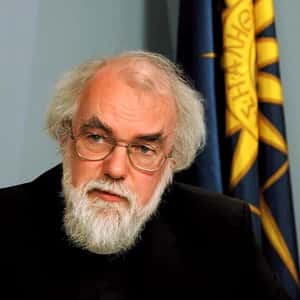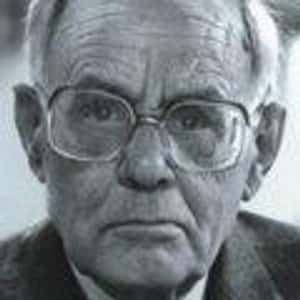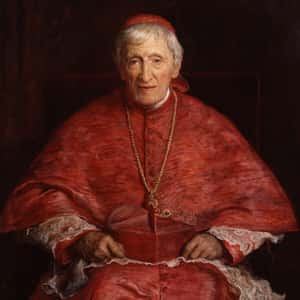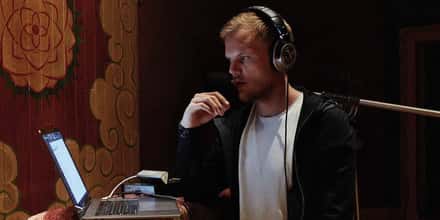List of Famous Theologians
- Pope Benedict XVI (April 16, 1927 – December 31, 2022) was a retired prelate of the Catholic Church who served as head of the Church and sovereign of the Vatican City State from 2005 until his resignation in 2013. Benedict's election as pope occurred in the 2005 papal conclave that followed the death of Pope John Paul II. Benedict chose to be known by the title "pope emeritus" upon his resignation. He was described as "the main intellectual force in the Church" since the mid-1980s. In 2013, Benedict unexpectedly announced his resignation in a speech in Latin before the cardinals, citing a "lack of strength of mind and body" due to his advanced age. He is the first pope to resign since Gregory XII in 1415, and the first to do so on his own initiative since Celestine V in 1294. He was succeeded by Pope Francis, and moved into the newly renovated Mater Ecclesiae Monastery for his retirement. In his retirement, Benedict XVI made occasional public appearances alongside Francis.
- Albert Schweitzer (14 January 1875 – 4 September 1965) was an Alsatian polymath. He was a theologian, organist, writer, humanitarian, philosopher, and physician. A Lutheran, Schweitzer challenged both the secular view of Jesus as depicted by the historical-critical method current at this time, as well as the traditional Christian view. His contributions to the interpretation of Pauline Christianity concern the role of Paul's mysticism of "being in Christ" as primary and the doctrine of Justification by Faith as secondary. He received the 1952 Nobel Peace Prize for his philosophy of "Reverence for Life", becoming the eighth Frenchman to be awarded that prize. His philosophy was expressed in many ways, but most famously in founding and sustaining the Albert Schweitzer Hospital in Lambaréné, in the part of French Equatorial Africa which is now Gabon. As a music scholar and organist, he studied the music of German composer Johann Sebastian Bach and influenced the Organ Reform Movement (Orgelbewegung).
- Martin Luther, , (; German: [ˈmaɐ̯tiːn ˈlʊtɐ]; 10 November 1483 – 18 February 1546) was a German professor of theology, composer, priest, monk, and a seminal figure in the Protestant Reformation. Luther was ordained to the priesthood in 1507. He came to reject several teachings and practices of the Roman Catholic Church; in particular, he disputed the view on indulgences. Luther proposed an academic discussion of the practice and efficacy of indulgences in his Ninety-five Theses of 1517. His refusal to renounce all of his writings at the demand of Pope Leo X in 1520 and the Holy Roman Emperor Charles V at the Diet of Worms in 1521 resulted in his excommunication by the pope and condemnation as an outlaw by the Holy Roman Emperor. Luther taught that salvation and, consequently, eternal life are not earned by good deeds but are received only as the free gift of God's grace through the believer's faith in Jesus Christ as redeemer from sin. His theology challenged the authority and office of the Pope by teaching that the Bible is the only source of divinely revealed knowledge, and opposed sacerdotalism by considering all baptized Christians to be a holy priesthood. Those who identify with these, and all of Luther's wider teachings, are called Lutherans, though Luther insisted on Christian or Evangelical (German: evangelisch) as the only acceptable names for individuals who professed Christ. His translation of the Bible into the German vernacular (instead of Latin) made it more accessible to the laity, an event that had a tremendous impact on both the church and German culture. It fostered the development of a standard version of the German language, added several principles to the art of translation, and influenced the writing of an English translation, the Tyndale Bible. His hymns influenced the development of singing in Protestant churches. His marriage to Katharina von Bora, a former nun, set a model for the practice of clerical marriage, allowing Protestant clergy to marry.In two of his later works, Luther expressed antagonistic views towards Jews. His rhetoric was not directed at Jews alone, but also towards Roman Catholics, Anabaptists, and nontrinitarian Christians. Luther died in 1546 with Pope Leo X's excommunication still effective.More Martin Luther
- Dig Deeper...All The Many Ways Martin Luther Was Out Of His Ever-Loving Mind
- #199 of 508 onThe 500+ Best Writers of All Time
- #295 of 560 onPeople We Wish Were Still Alive
- John Calvin (;French: Jean Calvin [ʒɑ̃ kalvɛ̃]; born Jehan Cauvin; 10 July 1509 – 27 May 1564) was a French theologian, pastor and reformer in Geneva during the Protestant Reformation. He was a principal figure in the development of the system of Christian theology later called Calvinism, aspects of which include the doctrines of predestination and of the absolute sovereignty of God in salvation of the human soul from death and eternal damnation, in which doctrines Calvin was influenced by and elaborated upon the Augustinian and other Christian traditions. Various Congregational, Reformed and Presbyterian churches, which look to Calvin as the chief expositor of their beliefs, have spread throughout the world. Calvin was a tireless polemic and apologetic writer who generated much controversy. He also exchanged cordial and supportive letters with many reformers, including Philipp Melanchthon and Heinrich Bullinger. In addition to his seminal Institutes of the Christian Religion, Calvin wrote commentaries on most books of the Bible, confessional documents, and various other theological treatises. Calvin was originally trained as a humanist lawyer. He broke from the Roman Catholic Church around 1530. After religious tensions erupted in widespread deadly violence against Protestant Christians in France, Calvin fled to Basel, Switzerland, where in 1536 he published the first edition of the Institutes. In that same year, Calvin was recruited by Frenchman William Farel to join the Reformation in Geneva, where he regularly preached sermons throughout the week; but the governing council of the city resisted the implementation of their ideas, and both men were expelled. At the invitation of Martin Bucer, Calvin proceeded to Strasbourg, where he became the minister of a church of French refugees. He continued to support the reform movement in Geneva, and in 1541 he was invited back to lead the church of the city. Following his return, Calvin introduced new forms of church government and liturgy, despite opposition from several powerful families in the city who tried to curb his authority. During this period, Michael Servetus, a Spaniard regarded by both Roman Catholics and Protestants as having a heretical view of the Trinity, arrived in Geneva. He was denounced by Calvin and burned at the stake for heresy by the city council. Following an influx of supportive refugees and new elections to the city council, Calvin's opponents were forced out. Calvin spent his final years promoting the Reformation both in Geneva and throughout Europe.
- John Wesley (; 28 June [O.S. 17 June] 1703 – 2 March 1791) was an English cleric, theologian and evangelist who was a leader of a revival movement within the Church of England known as Methodism. The societies he founded became the dominant form of the independent Methodist movement that continues to present. Educated at Charterhouse and Christ Church, Oxford, Wesley was elected a fellow of Lincoln College, Oxford in 1726 and ordained as an Anglican priest two years later. He led the "Holy Club", a society formed for the purpose of study and the pursuit of a devout Christian life; it had been founded by his brother, Charles, and counted George Whitefield among its members. After an unsuccessful ministry of two years at Savannah in the Georgia Colony, Wesley returned to London and joined a religious society led by Moravian Christians. On 24 May 1738 he experienced what has come to be called his evangelical conversion, when he felt his "heart strangely warmed". He subsequently left the Moravians, beginning his own ministry. A key step in the development of Wesley's ministry was, like Whitefield, to travel and preach outdoors. In contrast to Whitefield's Calvinism, Wesley embraced Arminian doctrines. Moving across Great Britain and Ireland, he helped form and organise small Christian groups that developed intensive and personal accountability, discipleship and religious instruction; most importantly, he appointed itinerant, unordained evangelists to care for these groups of people. Under Wesley's direction, Methodists became leaders in many social issues of the day, including prison reform and the abolition of slavery. Although he was not a systematic theologian, Wesley argued for the notion of Christian perfection and against Calvinism—and, in particular, against its doctrine of predestination. He held that, in this life, Christians could achieve a state where the love of God "reigned supreme in their hearts", giving them outward holiness. His evangelicalism, firmly grounded in sacramental theology, maintained that means of grace were the manner by which God sanctifies and transforms the believer, encouraging people to experience Jesus Christ personally. Wesley's teachings, collectively known as Wesleyan theology, continue to underpin the doctrine of the Methodist Churches. Throughout his life, Wesley remained within the established Church of England, insisting that the Methodist movement lay well within its tradition. In his early ministry, Wesley was barred from preaching in many parish churches and the Methodists were persecuted; he later became widely respected and, by the end of his life, had been described as "the best loved man in England". In 2002, he was placed at number 50 in the BBC's poll of the 100 Greatest Britons.
Desiderius Erasmus
Desiderius Erasmus Roterodamus (; 28 October 1466 – 12 July 1536), known as Erasmus or Erasmus of Rotterdam, was a Dutch philosopher and Christian humanist who is widely considered to have been the greatest scholar of the northern Renaissance. Originally trained as a Catholic priest, Erasmus was an important figure in classical scholarship who wrote in a pure Latin style. Among humanists he enjoyed the sobriquet "Prince of the Humanists", and has been called "the crowning glory of the Christian humanists". Using humanist techniques for working on texts, he prepared important new Latin and Greek editions of the New Testament, which raised questions that would be influential in the Protestant Reformation and Catholic Counter-Reformation. He also wrote On Free Will, In Praise of Folly, Handbook of a Christian Knight, On Civility in Children, Copia: Foundations of the Abundant Style, Julius Exclusus, and many other works. Erasmus lived against the backdrop of the growing European religious Reformation. While he was critical of the abuses within the Catholic Church and called for reform, he nonetheless kept his distance from Luther, Henry VIII, and John Calvin and continued to recognise the authority of the pope, emphasizing a middle way with a deep respect for traditional faith, piety and grace, and rejecting Luther's emphasis on faith alone. Erasmus remained a member of the Catholic Church all his life, remaining committed to reforming the church and its clerics' abuses from within. He also held to the doctrine of free will, which some Reformers (Calvinists) rejected in favor of the doctrine of predestination. His middle road ("via media") approach disappointed, and even angered, scholars in both camps. Erasmus died suddenly in Basel in 1536 while preparing to return to Brabant and was buried in Basel Minster, the former cathedral of the city. A bronze statue of Erasmus was erected in 1622 in his city of birth, replacing an earlier work in stone.- Søren Aabye Kierkegaard ( SORR-ən KEER-kə-gard, also US: -gor, Danish: [sɶːɐ̯n̩ ˈkʰiɐ̯kəkɒːˀ] (listen); 5 May 1813 – 11 November 1855) was a Danish philosopher, theologian, poet, social critic and religious author who is widely considered to be the first existentialist philosopher. He wrote critical texts on organized religion, Christendom, morality, ethics, psychology, and the philosophy of religion, displaying a fondness for metaphor, irony and parables. Much of his philosophical work deals with the issues of how one lives as a "single individual", giving priority to concrete human reality over abstract thinking and highlighting the importance of personal choice and commitment. He was against literary critics who defined idealist intellectuals and philosophers of his time, and thought that Swedenborg, Hegel, Fichte, Schelling, Schlegel and Hans Christian Andersen were all "understood" far too quickly by "scholars".Kierkegaard's theological work focuses on Christian ethics, the institution of the Church, the differences between purely objective proofs of Christianity, the infinite qualitative distinction between man and God, and the individual's subjective relationship to the God-Man Jesus the Christ, which came through faith. Much of his work deals with Christian love. He was extremely critical of the practice of Christianity as a state religion, primarily that of the Church of Denmark. His psychological work explored the emotions and feelings of individuals when faced with life choices.Kierkegaard's early work was written under the various pseudonyms that he used to present distinctive viewpoints and to interact with each other in complex dialogue. He explored particularly complex problems from different viewpoints, each under a different pseudonym. He wrote many Upbuilding Discourses under his own name and dedicated them to the "single individual" who might want to discover the meaning of his works. Notably, he wrote: "Science and scholarship want to teach that becoming objective is the way. Christianity teaches that the way is to become subjective, to become a subject." While scientists can learn about the world by observation, Kierkegaard emphatically denied that observation could reveal the inner workings of the world of the spirit.Some of Kierkegaard's key ideas include the concept of "subjective and objective truths", the knight of faith, the recollection and repetition dichotomy, angst, the infinite qualitative distinction, faith as a passion, and the three stages on life's way. Kierkegaard wrote in Danish and the reception of his work was initially limited to Scandinavia, but by the turn of the 20th century his writings were translated into French, German, and other major European languages. By the mid-20th century, his thought exerted a substantial influence on philosophy, theology, and Western culture.More Søren Kierkegaard
- #76 of 508 onThe 500+ Best Writers of All Time
- #395 of 560 onPeople We Wish Were Still Alive
- #18 of 72 onThe Hottest Dead Writers
- Avery Robert Dulles, S.J. (; August 24, 1918 – December 12, 2008) was a Jesuit priest, theologian and cardinal of the Catholic Church. Dulles served on the faculty of Woodstock College from 1960 to 1974, of the Catholic University of America from 1974 to 1988, and as the Laurence J. McGinley Professor of Religion and Society at Fordham University from 1988 to 2008. He was an internationally-known author and lecturer.
- Dietrich Bonhoeffer (German: [ˈdiːtʁɪç ˈboːnhœfɐ]; 4 February 1906 – 9 April 1945) was a German pastor, theologian, anti-Nazi dissident, and key founding member of the Confessing Church. His writings on Christianity's role in the secular world have become widely influential, and his book The Cost of Discipleship has been described as a modern classic.Apart from his theological writings, Bonhoeffer was known for his staunch resistance to Nazi dictatorship, including vocal opposition to Hitler's euthanasia program and genocidal persecution of the Jews. He was arrested in April 1943 by the Gestapo and imprisoned at Tegel prison for one and a half years. Later, he was transferred to Flossenbürg concentration camp. After being accused of being associated with the July 20 plot to assassinate Adolf Hitler, he was quickly tried, along with other accused plotters, including former members of the Abwehr (the German Military Intelligence Office), and then hanged on 9 April 1945 as the Nazi regime was collapsing.
- Karl Paul Reinhold Niebuhr (1892–1971) was an American Reformed theologian, ethicist, commentator on politics and public affairs, and professor at Union Theological Seminary for more than 30 years. Niebuhr was one of America's leading public intellectuals for several decades of the 20th century and received the Presidential Medal of Freedom in 1964. A public theologian, he wrote and spoke frequently about the intersection of religion, politics, and public policy, with his most influential books including Moral Man and Immoral Society and The Nature and Destiny of Man. The latter is ranked number 18 of the top 100 non-fiction books of the twentieth century by Modern Library. Andrew Bacevich labelled Niebuhr's book The Irony of American History "the most important book ever written on U.S. foreign policy." The historian Arthur Schlesinger Jr. described Niebuhr as "the most influential American theologian of the 20th century" and Time posthumously called Niebuhr "the greatest Protestant theologian in America since Jonathan Edwards."Starting as a minister with working-class sympathies in the 1920s and sharing with many other ministers a commitment to pacifism and socialism, his thinking evolved during the 1930s to neo-orthodox realist theology as he developed the philosophical perspective known as Christian realism. He attacked utopianism as ineffectual for dealing with reality, writing in The Children of Light and the Children of Darkness (1944), "Man's capacity for justice makes democracy possible; but man's inclination to injustice makes democracy necessary." Niebuhr's realism deepened after 1945 and led him to support American efforts to confront Soviet communism around the world. A powerful speaker, he was one of the most influential thinkers of the 1940s and 1950s in public affairs. Niebuhr battled with religious liberals over what he called their naïve views of the contradictions of human nature and the optimism of the Social Gospel, and battled with the religious conservatives over what he viewed as their naïve view of scripture and their narrow definition of "true religion". During this time he was viewed by many as the intellectual rival of John Dewey.Niebuhr's contributions to political philosophy include utilizing the resources of theology to argue for political realism. His work has also significantly influenced international relations theory, leading many scholars to move away from idealism and embrace realism. A large number of scholars, including political scientists, political historians, and theologians, have noted his influence on their thinking. Aside from academics, activists such as Myles Horton and Martin Luther King Jr., numerous politicians that include Hillary Clinton, Hubert Humphrey, Dean Acheson, James Comey, Madeleine Albright, and John McCain, as well as former US Presidents Barack Obama and Jimmy Carter; have also cited his influence on their thought. Recent years have seen a renewed interest in Niebuhr's work, in part because of Obama's stated admiration for Niebuhr. In 2017, PBS released a documentary on Niebuhr, titled An American Conscience: The Reinhold Niebuhr Story. Aside from his political commentary, Niebuhr is also known for having composed the Serenity Prayer, a widely recited prayer which was popularized by Alcoholics Anonymous. Niebuhr was also one of the founders of both Americans for Democratic Action and the International Rescue Committee and also spent time at the Institute for Advanced Study at Princeton, while serving as a visiting professor at both Harvard and Princeton. He was also the brother of another prominent theologian, H. Richard Niebuhr.
- Ian Campbell Bradley (born 28 May 1950) is a retired British academic, author, theologian, Church of Scotland minister, journalist and broadcaster. At the University of St Andrews, he was Professor of Cultural and Spiritual History, and was previously Principal of St Mary's College and a University chaplain. He also served as the associate minister of Holy Trinity Church, St Andrews.He has researched and written widely on religious matters, from Celtic Christianity to the future of spirituality in Britain. In addition, he has published works on the subjects of hymnody, monarchy, the Victorian era, Gilbert and Sullivan and musical theatre.
- Mary Daly (October 16, 1928 – January 3, 2010) was an American radical feminist philosopher, academic, and theologian. Daly, who described herself as a "radical lesbian feminist", taught at the Jesuit-run Boston College for 33 years. Daly retired in 1999, after violating university policy by refusing to allow male students in her advanced women's studies classes. She allowed male students in her introductory class and privately tutored those who wanted to take advanced classes.
Nasir al-Din Tusi
Muhammad ibn Muhammad ibn al-Hasan al-Tūsī (Persian: محمد بن محمد بن حسن طوسی 18 February 1201 – 26 June 1274), better known as Nasir al-Din Tusi (Persian: نصیر الدین طوسی; or simply Tusi in the West), was a Persian polymath, architect, philosopher, physician, scientist, and theologian. He is often considered the creator of trigonometry as a mathematical discipline in its own right. He was a Twelver Muslim. The Muslim scholar Ibn Khaldun (1332–1406) considered Tusi to be the greatest of the later Persian scholars.- Peter Abelard (; Latin: Petrus Abaelardus or Abailardus; French: Pierre Abélard, pronounced [a.be.laːʁ]; 1079 – 21 April 1142) was a medieval French scholastic philosopher, theologian, and preeminent logician. His love for, and affair with, Héloïse d'Argenteuil has become legendary. The Chambers Biographical Dictionary describes him as "the keenest thinker and boldest theologian of the 12th Century".More Pierre Abélard
- #7 of 11 on11 Scandals That Rocked The Medieval World
- #53 of 61 onWho Is The Most Famous Pierre In The World?
- #250 of 320 onFamous People Buried at Pere Lachaise Cemetery
Mercy Oduyoye
Mercy Amba Oduyoye is a Methodist theologian known for her work in African women's theology. She is currently the director of the Institute of African Women in Religion and Culture at Trinity Theological Seminary in Ghana. Oduyoye earned a bachelor's degree from the University of Ghana in 1963, a second bachelor's degree from Cambridge University in 1965, and a master's degree from Cambridge in 1969. From 1967-1979, she was youth education secretary for the World Council of Churches; from 1987–1994, she was Deputy General Secretary for the same organization. She has taught at Harvard University, Union Theological Seminary, and the University of Ibadan. She has also served as president of the World Student Christian Federation. Oduyoye has written four books and over eighty articles focusing on Christian theology from a feminist and African perspective. One of her central subjects is how African religion and culture influences the experiences of African women. In particular, she has addressed the effects of economic oppression on African women. Oduyoye has been awarded honorary degrees by the University of the Western Cape in 2002 and Yale University in 2008.Elizabeth A. Johnson
Elizabeth A. Johnson is a Christian feminist theologian. She is a Distinguished Professor of Theology at Fordham University, a Jesuit institution in New York City. She is a member of the Sisters of St. Joseph of Brentwood.- Johan Adam Heyns (27 May 1928 – 5 November 1994) was an Afrikaner Calvinist theologian and moderator of the general synod of the Nederduits Gereformeerde Kerk (NGK) in South Africa. He was assassinated at his home in Waterkloof Ridge, Pretoria.
- Karl Barth (; German: [baɐ̯t]; (1886-05-10)May 10, 1886 – (1968-12-10)December 10, 1968) was a Swiss Reformed theologian who is most well known for his landmark The Epistle to the Romans, involvement in the Confessing Church, authorship of the Barmen Declaration, and especially his five volume theological summa the Church Dogmatics (published in twelve part-volumes between 1932-1967). Barth's influence expanded well beyond the academic realm to mainstream culture, leading him to be featured on the cover of Time on April 20, 1962 and Pope Pius XII said Barth was “the greatest theologian since Thomas Aquinas.”Barth's theological career began while he was known as the "Red Pastor from Safenwil" when he wrote his first edition of his The Epistle to the Romans (1919). Beginning with his second edition of The Epistle to the Romans (1921), Barth began to depart from his former training – and began to garner substantial worldwide acclaim – with a liberal theology he inherited from Adolf von Harnack, Friedrich Schleiermacher and others. Barth influenced many significant theologians such as Dietrich Bonhoeffer who supported the Confessing Church, and Jürgen Moltmann, Helmut Gollwitzer, James H. Cone, Wolfhart Pannenberg, Rudolf Bultmann, Thomas F. Torrance, Hans Küng, and also Reinhold Niebuhr, Jacques Ellul, Stanley Hauerwas, and novelists such as John Updike and Miklós Szentkuthy. Among many other areas, Barth has also had a profound influence on modern Christian ethics. He has influenced the work of ethicists such as Stanley Hauerwas, John Howard Yoder, Jacques Ellul and Oliver O'Donovan.
- Karl Theodor Jaspers (; German: [ˈkaɐ̯l ˈjaspɐs]; 23 February 1883 – 26 February 1969) was a German-Swiss psychiatrist and philosopher who had a strong influence on modern theology, psychiatry, and philosophy. After being trained in and practicing psychiatry, Jaspers turned to philosophical inquiry and attempted to discover an innovative philosophical system. He was often viewed as a major exponent of existentialism in Germany, though he did not accept the label.
- Alister Edgar McGrath (born 1953) is a Northern Irish theologian, priest, intellectual historian, scientist, Christian apologist, and public intellectual. He currently holds the Andreas Idreos Professorship in Science and Religion in the Faculty of Theology and Religion at the University of Oxford, and is Professor of Divinity at Gresham College. He was previously Professor of Theology, Ministry, and Education at King's College London and Head of the Centre for Theology, Religion and Culture, Professor of Historical Theology at the University of Oxford, and was principal of Wycliffe Hall, Oxford, until 2005. He is an Anglican priest.Aside from being a faculty member at Oxford, McGrath has also taught at Cambridge University and is a Teaching Fellow at Regent College. McGrath holds three doctorates from the University of Oxford: a Doctor of Philosophy degree in molecular biophysics, a Doctor of Divinity degree in theology, and a Doctor of Letters degree in intellectual history. McGrath is noted for his work in historical theology, systematic theology, and the relationship between science and religion, as well as his writings on apologetics. He is also known for his opposition to New Atheism and antireligionism and his advocacy of theological critical realism. Among his best-known books are The Twilight of Atheism, The Dawkins Delusion?, Dawkins' God: Genes, Memes, and the Meaning of Life, and A Scientific Theology. He is also the author of a number of popular textbooks on theology.
- Paul Johannes Tillich (August 20, 1886 – October 22, 1965) was a German-American Christian existentialist philosopher and Lutheran Protestant theologian who is widely regarded as one of the most influential theologians of the twentieth century.Among the general public, he is best known for his works The Courage to Be (1952) and Dynamics of Faith (1957), which introduced issues of theology and modern culture to a general readership. In academic theology, he is best known for his major three-volume work Systematic Theology (1951–63) in which he developed his "method of correlation", an approach of exploring the symbols of Christian revelation as answers to the problems of human existence raised by contemporary existential philosophical analysis.
- Jonathan Edwards was a Protestant preacher, philosopher, and theologian. Edwards "is widely acknowledged to be America's most important and original philosophical theologian," and one of America's greatest intellectuals. Edwards's theological work is broad in scope, but he was rooted in Reformed theology, the metaphysics of theological determinism, and the Puritan heritage. Recent studies have emphasized how thoroughly Edwards grounded his life's work on conceptions of beauty, harmony, and ethical fittingness, and how central The Enlightenment was to his mindset. Edwards played a critical role in shaping the First Great Awakening, and oversaw some of the first revivals in 1733–35 at his church in Northampton, Massachusetts. Edwards delivered the sermon "Sinners in the Hands of an Angry God", a classic of early American literature, during another revival in 1741, following George Whitefield's tour of the Thirteen Colonies.
- Seyyed Mohammad Khatami (Persian: سید محمد خاتمی, pronounced [ sejˈjed mohæmˈmæde xɒːtæˈmiː] (listen); born 14 October 1943) served as the fifth President of Iran from 3 August 1997 to 3 August 2005. He also served as Iran's Minister of Culture from 1982 to 1992. He was a critic of former President Mahmoud Ahmadinejad's government.Little known until that point, Khatami attracted global attention during his first election to the presidency when he received almost 70% of the vote. Khatami had run on a platform of liberalization and reform. During his two terms as president, Khatami advocated freedom of expression, tolerance and civil society, constructive diplomatic relations with other states including those in Asia and the European Union, and an economic policy that supported a free market and foreign investment. On 8 February 2009, Khatami announced that he would run in the 2009 presidential election but withdrew on 16 March in favor of his long-time friend and adviser, former Prime Minister of Iran, Mir-Hossein Mousavi.Khatami proposed the Dialogue Among Civilizations. The United Nations proclaimed the year 2001 as the United Nations' Year of Dialogue Among Civilizations, on Khatami's suggestion. In October 2009, the award committee of the Global Dialogue Prize declared Dariush Shayegan and Mohammad Khatami as joint winners of the inaugural award, "for their work in developing and promoting the concept of a 'dialogue among cultures and civilizations' as new paradigm of cultural subjectivity and as new paradigm of international relations". The Global Dialogue Prize is one of the world's most significant recognitions for research in the Humanities, honoring "excellence in research and research communication on the conditions and content of a global intercultural dialogue on values". In January 2010, Mohammad Khatami stated that "he was not in the position to accept the award", and the prize was given to Dariush Shayegan alone. Currently the Iranian media are forbidden on the orders of Tehran's prosecutor from publishing pictures of Khatami, or quoting his words, on account of his support for the defeated reformist candidates in the disputed 2009 re-election of Mahmoud Ahmadinejad.
- Michael Servetus (; Spanish: Miguel Serveto as real name, French: Michel Servet), also known as Miguel Servet, Miguel de Villanueva, Michel Servet, Revés, or Michel de Villeneuve (Villanueva de Sigena, Aragón, Spain, 29 September 1509 or 1511 – 27 October 1553), was a Spanish theologian, physician, cartographer, and Renaissance humanist. He was the first European to correctly describe the function of pulmonary circulation, as discussed in Christianismi Restitutio (1553). He was a polymath versed in many sciences: mathematics, astronomy and meteorology, geography, human anatomy, medicine and pharmacology, as well as jurisprudence, translation, poetry and the scholarly study of the Bible in its original languages. He is renowned in the history of several of these fields, particularly medicine. He participated in the Protestant Reformation, and later developed a heterodox view of the Trinity and Christology. After being condemned by Catholic authorities in France, he fled to Calvinist Geneva where he was burnt at the stake for heresy by order of the city's governing council.More Michael Servetus
- Dig Deeper...Famous People Who Were Murdered
- #2281 of 3,183 onThe Most Influential People Of All Time
- #159 of 183 onPeople Executed by Burning
- Leonardo Boff (Portuguese pronunciation: [leoˈnaʁdu ˈbɔf], born December 14, 1938), born as Genézio Darci Boff (pronounced [ʒeˈnɛzju daʁˈsi ˈbɔf]), is a Brazilian theologian and writer, known for his active support for liberation theology. He currently serves as Professor Emeritus of Ethics, Philosophy of Religion, and Ecology at the Rio de Janeiro State University.
- Rowan Douglas Williams, Baron Williams of Oystermouth, (born 14 June 1950), is a Welsh Anglican bishop, theologian and poet. He was the 104th Archbishop of Canterbury, a position he held from December 2002 to December 2012. Previously the Bishop of Monmouth and Archbishop of Wales, Williams was the first Archbishop of Canterbury in modern times not to be appointed from within the Church of England. Williams' primacy was marked by speculation that the Anglican Communion (in which the Archbishop of Canterbury is the leading figure) was on the verge of fragmentation over disagreements on contemporary issues such as homosexuality and the ordination of women. Williams worked to keep all sides talking to one another. Notable events during his time as Archbishop of Canterbury include the rejection by a majority of dioceses of his proposed Anglican Covenant and, in the final General Synod of his tenure, his unsuccessful attempt to secure a sufficient majority for a measure to allow the appointment of women as bishops in the Church of England. Having spent much of his earlier career as an academic at the universities of Cambridge and Oxford successively, Williams speaks three languages and reads at least nine. After standing down as Archbishop, Williams took up the positions of Master of Magdalene College, Cambridge, in 2013, and Chancellor of the University of South Wales in 2014. He also delivered the Gifford Lectures at the University of Edinburgh in 2013. Justin Welby succeeded Williams as Archbishop of Canterbury on 9 November 2012, being enthroned in March 2013. On 26 December 2012, 10 Downing St announced Williams' elevation to the peerage as a life baron, so that he could continue to speak in the Upper House of Parliament. Following the creation of his title on 8 January and its gazetting on 11 January 2013, he was introduced to the temporal benches of the House of Lords as Baron Williams of Oystermouth on 15 January 2013, sitting as a crossbencher.
- Tariq Ramadan (Arabic: طارق رمضان; born 26 August 1962) is a Swiss Muslim academic, philosopher, and writer. He is Professor of Contemporary Islamic Studies at St Antony's College, Oxford and the Faculty of Theology and Religion, University of Oxford, but as of 2018 is taking an agreed leave of absence. He is a visiting professor at the Faculty of Islamic Studies at Hamad Bin Khalifa University in Qatar, and the Université Mundiapolis in Morocco. He is also a senior research fellow at Doshisha University in Japan. He is the director of the Research Centre of Islamic Legislation and Ethics (CILE), based in Doha. He is a member of the UK Foreign Office Advisory Group on Freedom of Religion or Belief. He was elected by Time magazine in 2000 as one of the seven religious innovators of the 21st century and in 2004 as one of the 100 most influential people in the world and by Foreign Policy readers (2005, 2006, 2008-2010, 2012-2015) as one of the top 100 most influential thinkers in the world and Global Thinkers. Ramadan describes himself as a "Salafi reformist".In November 2017, Tariq Ramadan took agreed leave of absence from Oxford University to contest allegations of rape and sexual misconduct. The university's statement noted that an "agreed leave of absence implies no acceptance or presumption of guilt". In February 2018 he was formally charged with raping two women. He denies wrongdoing and is suing one of his accusers for slander. He is currently in jail awaiting trial.
- Roger Williams (c. 21 December 1603 – between 27 January and 15 March 1683) was a Puritan minister, theologian, and author who founded Providence Plantations, which became the Colony of Rhode Island. He was a staunch advocate for religious freedom, separation of church and state, and fair dealings with American Indians, and he was one of the first abolitionists.Williams was expelled by the Puritan leaders from the Massachusetts Bay Colony for spreading "new and dangerous ideas", and he established the Providence Plantations in 1636 as a refuge offering what he called "liberty of conscience". In 1638, he founded the First Baptist Church in America, also known as the First Baptist Church of Providence. He studied the Indian languages and wrote the first book on the Narragansett language, and he organized the first attempt to prohibit slavery in any of the American colonies.
Karl Rahner
Karl Rahner (5 March 1904 – 30 March 1984) was a German Jesuit priest and theologian who, alongside Henri de Lubac, Hans Urs von Balthasar, and Yves Congar, is considered to be one of the most influential Roman Catholic theologians of the 20th century. He was the brother of Hugo Rahner, also a Jesuit scholar. Rahner was born in Freiburg, at the time a part of the Grand Duchy of Baden, a state of the German Empire; he died in Innsbruck, Austria. Before the Second Vatican Council, Rahner had worked alongside Congar, de Lubac, and Marie-Dominique Chenu, theologians associated with an emerging school of thought called the Nouvelle Théologie, elements of which had been condemned in the encyclical Humani generis of Pope Pius XII. Subsequently, however, the Second Vatican Council was much influenced by his theology and his understanding of Catholic faith.- John Henry Newman, (21 February 1801 – 11 August 1890) was a theologian and poet, first an Anglican priest and later a Catholic priest and cardinal, who was an important and controversial figure in the religious history of England in the 19th century. He was known nationally by the mid-1830s.Originally an evangelical Oxford University academic and priest in the Church of England, Newman then became drawn to the high-church tradition of Anglicanism. He became known as a leader of, and an able polemicist for the Oxford Movement, an influential and controversial grouping of Anglicans who wished to return to the Church of England many Catholic beliefs and liturgical rituals from before the English Reformation. In this, the movement had some success. In 1845 Newman, joined by some but not all of his followers, officially left the Church of England and his teaching post at Oxford University and was received into the Catholic Church. He was quickly ordained as a priest and continued as an influential religious leader, based in Birmingham. In 1879, he was created a cardinal by Pope Leo XIII in recognition of his services to the cause of the Catholic Church in England. He was instrumental in the founding of the Catholic University of Ireland in 1854, although he had left Dublin by 1859. CUI in time evolved into University College Dublin, today the largest university in Ireland. Newman was also a literary figure of note: his major writings including the Tracts for the Times (1833–1841), his autobiography Apologia Pro Vita Sua (1865–1866), the Grammar of Assent (1870), and the poem The Dream of Gerontius (1865), which was set to music in 1900 by Edward Elgar. He wrote the popular hymns "Lead, Kindly Light" and "Praise to the Holiest in the Height" (taken from Gerontius). Newman's beatification was officially proclaimed by Pope Benedict XVI on 19 September 2010 during his visit to the United Kingdom. His canonisation was officially approved by Pope Francis on 12 February 2019. On 1 July 2019, the Vatican announced that he will be canonized with four others by Pope Francis on 13 October 2019. He will become the fifth saint of the City of London, behind Thomas Becket (born in Cheapside), Thomas More (born on Milk Street), Edmund Campion (son of a London book seller) and Polydore Plasden (of Fleet Street).


